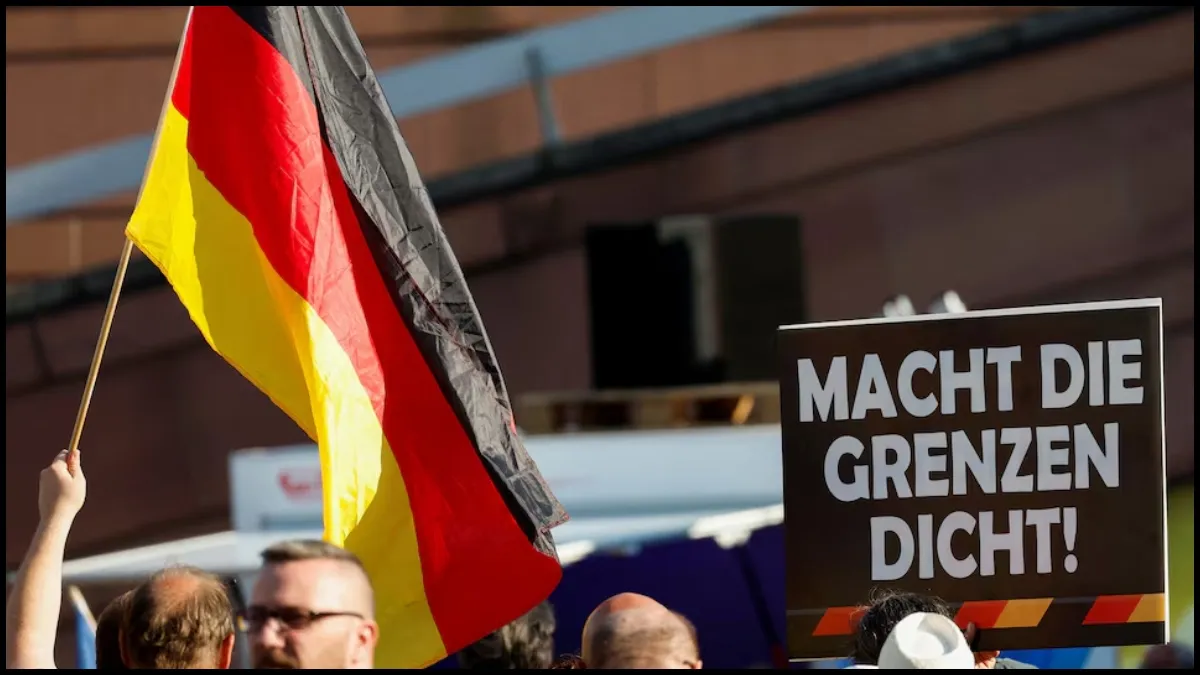Berlin: In a significant move, Germany's government has announced plans to impose tighter controls on all land borders in an attempt to tackle irregular migration and protect the public from threats such as Islamic extremism. This came days after a suspected Islamist gunman was shot dead near an Israeli consulate on Thursday, the latest in a series of attacks.
The shooting came at a time of heightened polarisation in Germany's political climate. The anti-immigrant Alternative for Germany (AfD) became the first far-right party to win a regional election since World War Two. Under pressure, the government has designed a scheme enabling authorities to reject more migrants directly at German borders, according to interior minister Nancy Faeser.
The controls within what is normally a wide area of free movement - the European Schengen zone - will start on September 16 and initially last for six months, she said on Monday. "We are strengthening internal security and continuing our hard line against irregular migration," Faesar added, noting the government had notified the European Commission and neighboring countries of the intended controls.
Why is Germany enforcing tighter border controls?
Chancellor Olaf Scholz's government is seeking to seize back the initiative from the opposition far-right and conservatives, who have seen support rise as they tap into voter worries about stretched public services, integration and security. Recent deadly knife attacks in which the suspects were asylum seekers have stoked concerns over immigration.
The Islamic State group claimed responsibility for a knife attack in the western city of Solingen that killed three people in August. The militant group said in a statement on its Telegram account that the attack was carried out by one of its members "in revenge for Muslims in Palestine and everywhere".
Furthermore, then AfD became the first far-right party since World War Two to win a state election, in Thuringia, after campaigning heavily on the issue of migration. Polls show it is also voters' top concern in the state of Brandenburg, which is set to hold elections in two weeks. Scholz and Faeser's centre-left Social Democrats (SPD) are fighting to retain control of the government there, in a vote billed as a test of the strength of the SPD ahead of next year's federal election.
Backlash over rising immigration
A backlash had been building in Germany ever since it took in more than a million people mostly fleeing war-torn countries such as Syria during the 2015/2016 migrant crisis, migration experts say. It reached a tipping point in the country of 84 million people after it automatically granted asylum to around a million Ukrainians fleeing Russia's 2022 invasion even as Germany was struggling through an energy and economic crisis.
Since then, the German government has agreed to tighter deportation rules and resumed flying convicted criminals of Afghan nationality to their home country, despite suspending deportations after the Taliban took power in 2021 due to human rights concerns. Germany also announced stricter controls on its land borders with Poland, the Czech Republic and Switzerland last year.
Faeser said a new model would enable the government to turn back many more - but it could not talk about the model before confidential negotiations with the conservatives. The controls could test European unity if they lead to German authorities requesting other countries to take back substantial numbers of asylum seekers and migrants.
Austria's Interior Minister Gerhard Karner told Bild newspaper on Monday that his country would not take in any migrants turned away by Germany at the border. "There's no room for manoeuvre there," he said.
(with Reuters input)
ALSO READ | German police kill suspected Islamist gunman in shootout near Israeli consulate
ALSO READ | Germany resumes deportations of convicted criminals to Afghanistan for first time since 2021

